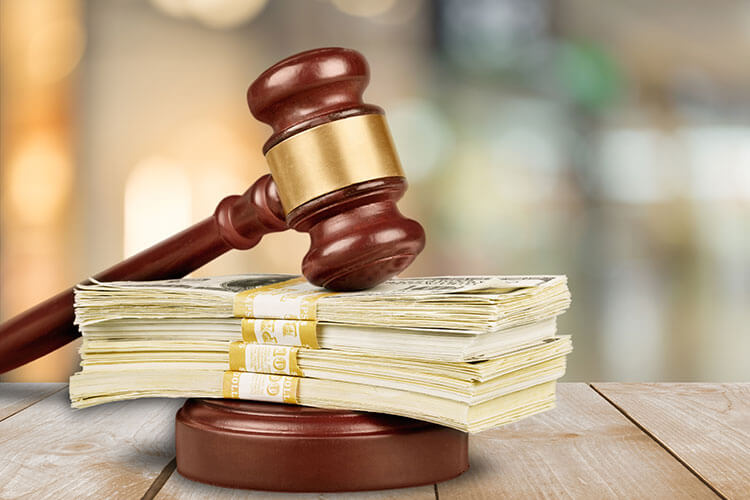Punitive damages are a form of compensation that occurs in legal settings when a dependant is legally considered guilty of a particular offense. Thus, this dependant must pay an additional sum beyond simply paying the victim. In fact, punitive damages are considered by many as a form of punishment for the acts that the defendant enacted onto the plaintiff.
By paying a larger sum, the defendant is both being punished and hopefully deterred from repeating the same offense in the future due to the required compensation the judge laid on them.
What are some examples of punitive damages that happen in the legal system?
One example of punitive damages is if a medical or health company makes a claim but the consumer who takes their product has a negative reaction. They may have gotten extremely ill and they provide that taking the company’s product is the reason. The company, thus, may be required to pay punitive damages to the victim who fell ill as a result of consuming their product. Cases like this are often reported on in the media and the high sums that companies pay are of interest to both the media and the public. In a case like this, the more widespread the knowledge is about the result of the case and the punitive damages the company had to pay, the less likely this company and other health and medical companies would be to release products that could result in a similar case. It may encourage businesses to invest more time, money, and effort into product research and testing before going to market and potentially causing a major health issue that requires legal action and possibly hefty fines or payments.
Another real-world example of punitive damages that may help you understand the concept is the wrongful termination of an employee. If a business fires an employee but the company was not legally allowed to fire them for the reason that it occurred, they may owe punitive damages. Imagine if an employee fell ill and had to be hospitalized for a prolonged period of time. The person’s employer may get frustrated at the amount of time that the person is taking off of work and they choose to fire the employee. Layers for the business may try to fight the case and claim that they had a right to fire the employee, but the judge may determine that the firing of the employee was unlawful. As a result, the judge may require the employee to pay punitive damages that are paid to the former employee. In these examples, other businesses facing similar circumstances with an employee may be less likely to fire the employee, knowing they may have to pay a large sum.

The recipients of large sums of money due to punitive damages may have lots of questions. One question might be, are punitive damages taxable? Or, where should I put punitive damage payments to keep them safe? Most people don’t know the intricacies of punitive damages, why they exist, or what happens to the recipient. Consulting with a lawyer or financial professional is a great idea to make sure you are fully aware of the situation and what is expected of you if you are paid punitive damages.





More Stories
Best Criminal Lawyers in Georgia: Navigating Legal Challenges with Top Expertise
Why Should You Consider Glendale Injury Law Firm for Your Family Law Needs?
New Jersey Bankruptcy Lawyer: Navigating Financial Recovery with Expertise